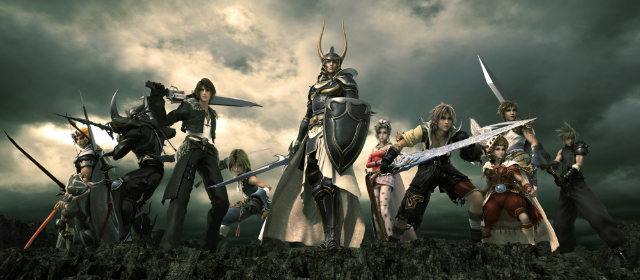When I was a teenager, I played sports games almost exclusively. It took Father Christmas delivering Resident Evil 4 one fateful December 25th to knock me out of my rut and change my gaming outlook forever.
At GodisaGeek I’m fortunate to have an even better resource for expanding my gaming vocabulary than good ol’ Santa; my fellow writers! I feel it is my duty to take full advantage of them and broaden my palette until it’s wider than a rower’s shoulders.
That’s why this week I am going to pick the brain of the wonderful and talented Mary Goodden, author of the Character Select and JRPG expert, to find out more about Japan’s most famous gaming export.
Mark Bridle: Mary, as the first writer to chat with me about games, and what with you being a woman and all, we are going to talk about “Girlfriend” Modes … No, I’m joking. Every time someone starts a conversation about “Girlfriend” Modes online, God kills a member of the Gearbox team. We can’t have that.
I want to learn about JRPGs. I was talking with the Tales of Graces f producer Hideo Baba a while ago and he couldn’t stop talking to me about the game’s story. He was obsessed. I asked him what he was most proud of; the story. What is unique about the game; the story. I am far from an expert in this field but his laser focus made me wonder, are JRPGs the great video game storytelling genre?
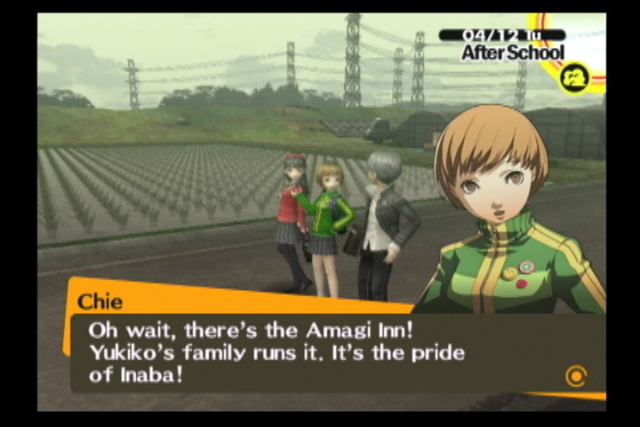
Mary Goodden: Well, they’re one of them, when done right. They excel at telling a certain kind of story, long drawn out epics with a detailed world and a large cast. But I think that the “epic” kind of story is something JRPG fans are looking for when they choose a game, and that will often be the thing that leads them to choose one JRPG over another. So I agree with Hideo Baba in a way, if you’ve got a JRPG with an amazing story, that’s probably the hook that you need to draw people in and get them excited. It’s not that all JRPG gameplay mechanics are the same, they’re not, but everyone knows a JRPG will involve stats and numbers and turn or time-based gameplay.
MB: Is this always the case with JRPGs? Is it always story first, gameplay systems second? And is Baba right to be so gung-ho about the story in JRPGs, or does the reality often not match up the aspiration?
MG: Some definitely have better gameplay mechanics than others, but I don’t think people choose one JRPG over another because they’re interested in how the combat system works. They want to visit another world for 100 hours, they want a long story, they want a good central cast of characters. This is why it is so utterly disappointing when the gameplay mechanic stops developing, or it becomes predictable, or just a grind. The story stops being worth the work it takes to unlock it. However, when it goes right, it goes very right. Take Final Fantasy VII for example; the gameplay mechanic is addictive. Having to think strategically, conserve resources, prepare for any eventuality, and watch your characters grow steadily more powerful is fun in itself. If the game has that nailed, then, and only then, is there a great framework on which to build a story.
MB: I think that Final Fantasy VII is a really interesting JRPG case study. I love the game and have incredibly fond memories of it, despite having never played it. I used to sit on the sofa watching my brother play it, annoying the heck out of him by asking for plot updates. I remember Aeris’ death, Sepiroth and Genova, and Cloud’s descent into madness as clearly as any game I ever played myself. To me, that game is a story. However, fifteen years on, many of FFVII’s core gameplay mechanics are held up as examples of JRPGs at their worst. I think FFVII is transcendent because of its story. I think much of the rest might be just nostalgia.
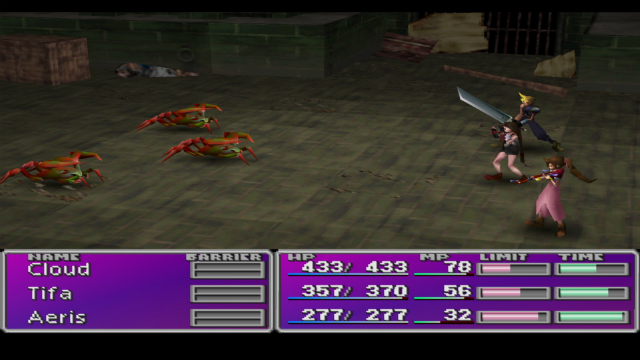
MG: Couldn’t disagree with you more about nostalgia. I started playing it last year because I was curious (and I also suspected nostalgia was a big factor in the game’s enduring popularity), and I think the mechanics are brilliant.
You remember the story, not the game, because you watched it, not played it.
Anyway, the gameplay mechanics are “held up as examples of JRPGs at their worst” only by people who don’t like that kind of gameplay and wish it was something else, the kind of person who would say “I don’t like chess because it’s not like surfing”. To quote Penny Arcade’s Tycho:
“There are outliers, to be sure, but Japanese role-playing games tend to be fairly linear in terms of narrative and feature a ton of strategic combat. These are genre staples. If you don’t like those things, or if you wish they were something else, that isn’t really the genre’s fault.”
Anyway, in Final Fantasy VII, the mechanics are pitch-perfect. You get a huge amount of freedom over your character, materia and weapon customisation and the game rewards planning and long-term strategy. This is balanced by the battles, which require short-term strategy that lesser JRPGs simply don’t. It’s frustrating to blast through battles repeating the same four commands, and VII never settles for this. As for random battles, they’re vital for the tension in FFVII as you have to gamble with your mana and resources.
Not only that, but it’s balanced, too. Incredible.
MB: I’m interested in what you say about JRPGs as the tellers of epic tales. The Homer’s, Dante’s and Milton’s of the games industry, only largely about groups of kids with spiky hair, impossibly starched coats and access to five foot long swords, who are facing down the end of the world.
MG: Well. Homer was an artist, not a medium. Really, if you want to make that comparison, then JRPGs are the epic poems of gaming, not the poets themselves. Also, a good 1,400 years separates Homer and Milton, whereas JRPGs have only been going for about 30 years. How many epic poems do you think have ever been written? How many of those do you think were any good? I guess you’re comparing the narrative abilities of epic poetry with those of the JRPG. I sort of agree, but they’re not necessarily analogues.
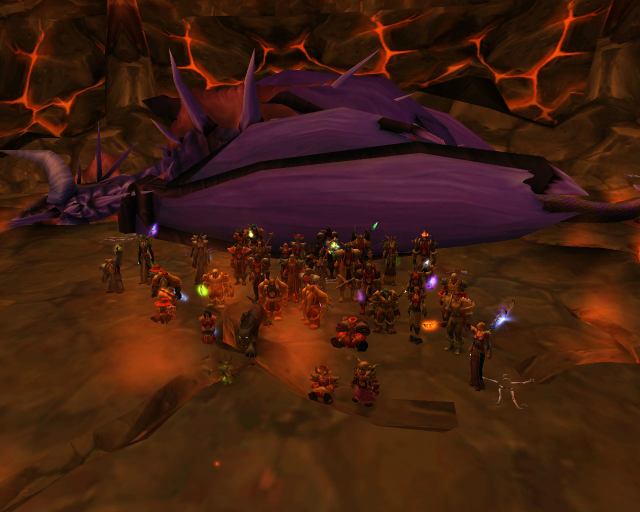
Also, I feel the terms “spiky hair” and “five foot long swords” are used in a – dare I say it – derogatory fashion? They’re certainly terms that are used as a shorthand for everything silly about JRPGs, but then you could make similar generalisations about any other kind of genre/cult medium. Take the kind of fantasy world inhabited by a large proportion of WRPGs and fantasy novels. Although when you actually bother playing/watching/reading them their differences and subtleties emerge, to an outsider they’re all set in similar faux-medieval fantasy worlds with the same few races (human, elves, orcs, dwarves).
MB: It absolutely was a little derogatory, I’m afraid. Though more at the marketing than at the games themselves. I’m beginning to wonder whether it is simply poor marketing or a lack of courage that holds the JRPG back in the west. We love epic stories, particularly in pop culture, and we aren’t averse to esoteric gameplay mechanics either. World of Warcraft subscriptions, the success of games like Borderlands and, to some extent, Street Fighter show that player’s are willing to learn and persevere with complex and unique gameplay mechanics without a necessary story pay off. Surely a solidly designed JRPG will hit some of these buttons too.
MG: Pretty much, yes. I do agree that they are held back in the west, and I think that’s mainly because there aren’t enough good ones. That’s true for every genre, but pretty much no other genre demands so much time for players. Borderlands and Street Fighter at least get going straight away, and devoting more time to them simply deepens an already great experience. With a JRPG, it’s more all-or-nothing: if you’re not going to finish them, there’s very little point.
I’m sure there are great ones, it’s just that they don’t really make it over here, I’m guessing because getting them here would be such a huge investment. Localisation of any game is a vast, time-consuming and expensive process, a JRPG more so. With a JRPG, if you get the dialogue wrong, the plot doesn’t make sense, if you get the UI wrong, the game is completely unplayable.
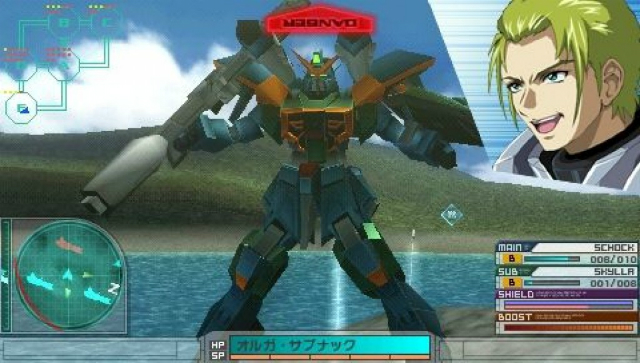
MB: It just seems to me that every JRPG has the same box cover, a broadly similar art style and no real push to uniqueness. Obviously this isn’t the limit of Japanese culture or imagination; these are the people who gave us Neon Genesis Evangelion, One Piece and Gundam (just for clarity, this isn’t an exhaustive list of Japanese cultural influence, just the best I can do first thing in the morning without coffee!!) That being said, with all the incredible variety that comes out of Japan, why do I feel that I have seen every JRPG before?
MG: Well, those are the words of a non-JRPG gamer.
If you’re talking about the kind of story and art style in JRPGs, there is that “incredible variety” of which you speak, but don’t be surprised if you haven’t picked up on it without really having played them.
Take the Persona games. Persona 4, many people’s (definitely my) favourite, is a masterpiece of storytelling. It’s set in a small rural middle-class town in Japan and the characters all have appropriate concerns. There’s the girl who can’t decide whether to go to uni or take over the running of her parents’ historic inn, the awkward dude from the big city who no-one understands, the single father trying to give his daughter the attention she needs and the boy struggling with his sexuality in a small-town goldfish bowl. Half the game takes place in the real world, where you wander around doing mundane things like school-work and part-time jobs. You also spend time with your friends, and the relationships you build with them make them more effective in battle.The other half takes place in a fantasy realm, but it’s metaphorical, and characters must fight down manifestations of their believable insecurities.
It doesn’t need to be Japanese culture, either. Eternal Sonata takes place inside the mind of the composer Frederic Chopin as he lies dying of tuberculosis. Snippets of his real life are interspersed with the dream world it created. The gameplay was also innovative but sadly it didn’t develop enough to hold my interest after the first twenty hours or so. I didn’t finish it because it didn’t give me quite enough, but I loved how gently melancholic the story was and how sweet the characters were.
Also I learned quite a bit about Chopin.
MB: Interesting. I think that the very best new titles maximise story and gameplay by blending the two disciplines into one. Gameplay design is telling the story, defining the relationships between player and world in a way that aligns with the main character. Is there anything JRPGs could do to match this? Or is it just a weakness of the genre? Is it a weakness at all?
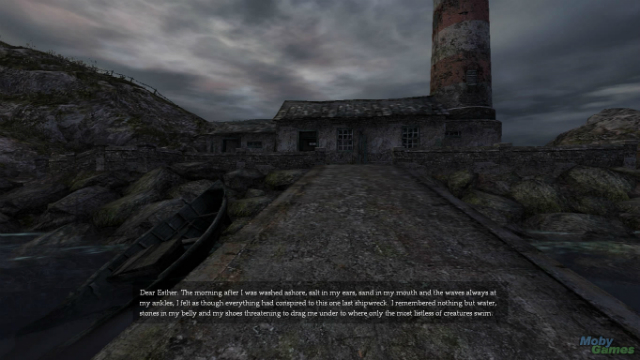
MG: Just because there’s detachment between what your fingers are doing and what your character is doing that there isn’t with a lot of other types of gameplay doesn’t mean that the gameplay isn’t involved in telling the story. Point-and-click games are very detached in this way too, do you think they don’t tell good stories and use gameplay to do it? You need to look at them on their own terms and see what the games do well for themselves rather than just point out what they don’t do that other games can. Dear Esther wouldn’t have worked as a JRPG, Final Fantasy X wouldn’t have worked as a shooter, but they’re both very emotional games.
MB: Your explanations of what JRPGs can be has me really interested. I promise I will play Tales of Graces f on release and will play Ni No Kuni. Regardless of where else this chat goes, I will be taking away a number of conclusions from the discussion.
1. Don’t judge a book by its cover. Especially if the cover has spiky haired kids with swords. The game could be about anything.
2. JRPGs are like any other genre; some games are good and some games are bad. You just have to find the good ones.
3. No gaming genre gives up its secrets without a little research.
4. Ask Mary things she knows about. You will learn a lot.


